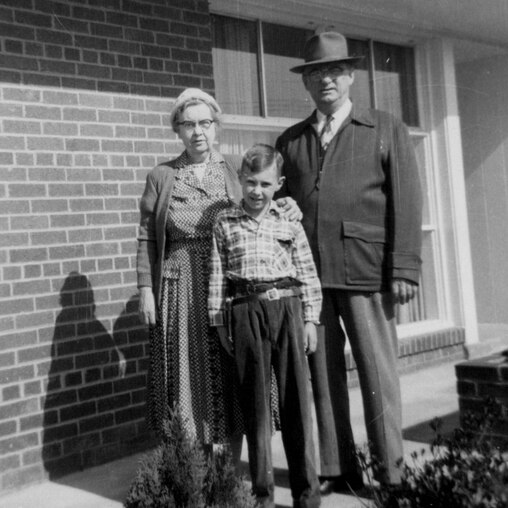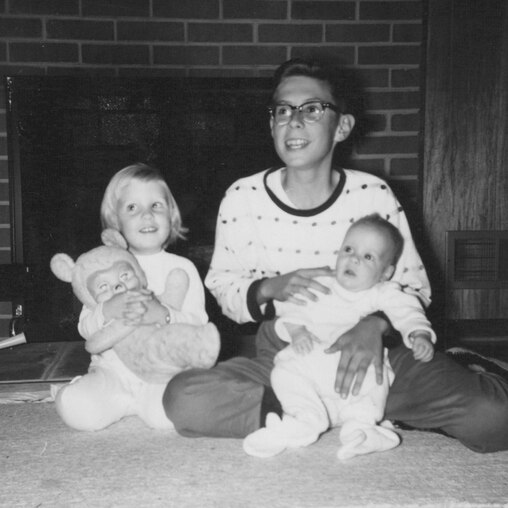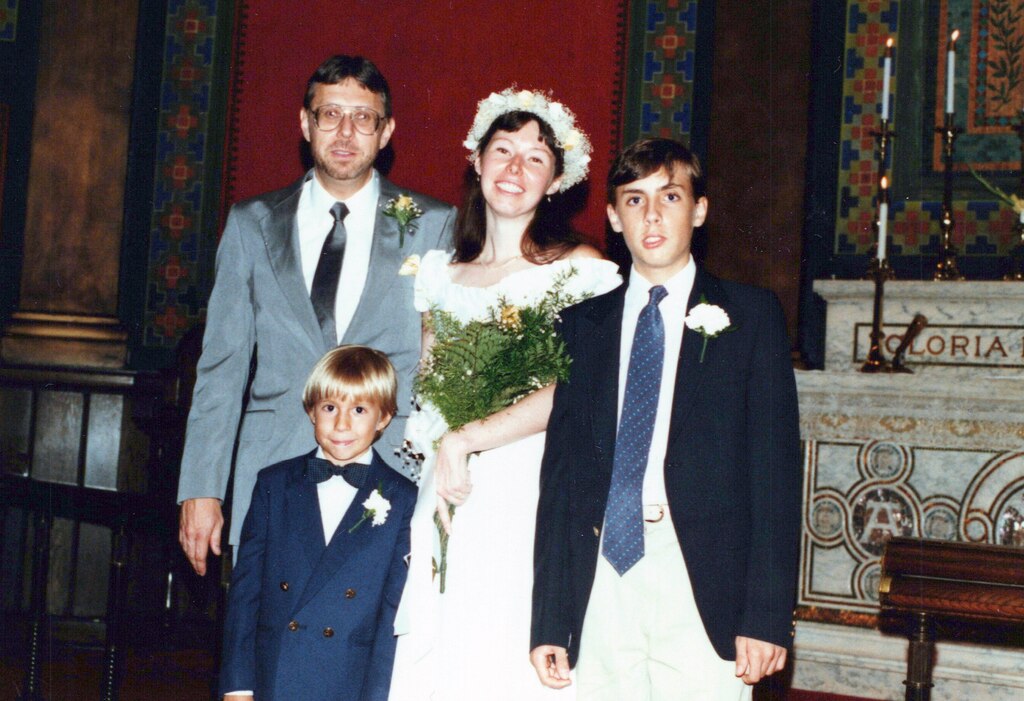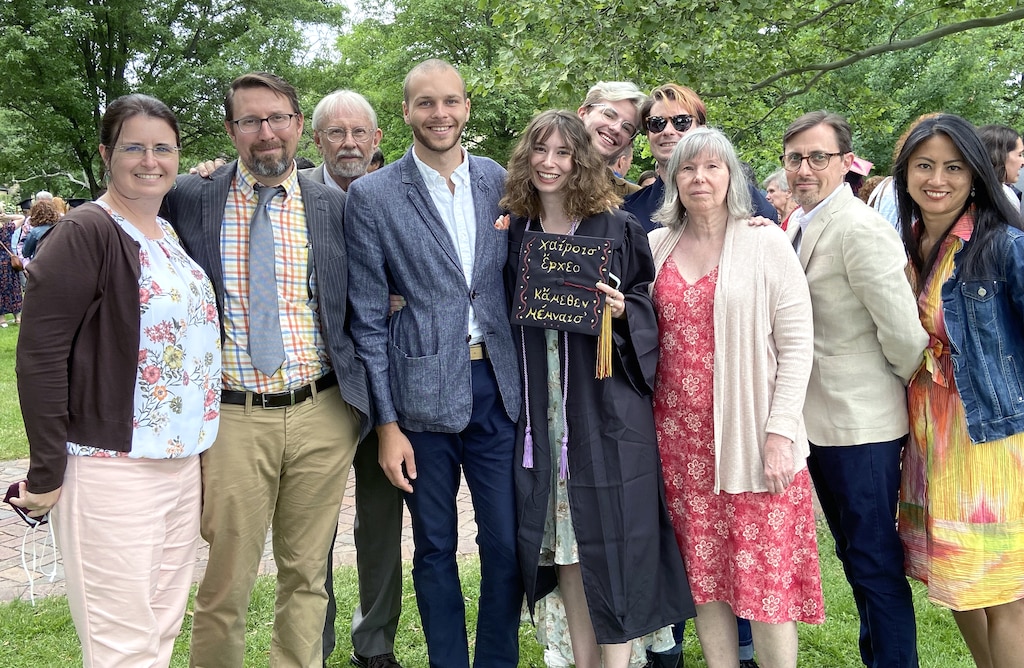Before Rev. Donald Lee Hudson became a beloved Lutheran minister in Baltimore, he grew up in the Baptist traditions of Virginia.
He came of age during the civil rights movement, and at the time, Southern Baptists weren’t very open to integration. One of his most impactful childhood memories was when his father marched him out of church as the preacher delivered a sermon that he felt dehumanized Black people, Hudson’s son said.
These were among the early experiences that pushed Hudson to convert to Lutheranism, a sect of Protestantism that has a “forward-leaning, more compassionate social tradition,” Mike Hudson said. Indeed, Lee Hudson defined his career by highlighting the intersection of Christianity and social justice. He felt the two were inseparable, friends and family said.
Lee Hudson was best known for his nearly three decades of service at Messiah English Lutheran Church, where he worked from 1985 until his retirement in 2014. But his reach extended far beyond Canton, and up until the last months of his life he was working with community groups and politicians to improve social services in Maryland.
Hudson, who also was a founding board member of Maryland Health Care for All and worked with various advocacy groups to improve housing options for seniors, died Aug. 29 after a cardiac episode. He was 78.
“Lee wanted his life to make a difference. He wanted to be a catalyst for action,” said Bishop Bill Gohl of Delaware-Maryland Synod. “I’m going to remember him as someone who inspires me to be a better person of faith and to recognize that faith is not a verb, that it moves us to action. If I talk about faith, I’m talking about practice, not a belief system.”
Read More
Hudson texted Gohl just days before his death: “Thought for some coalition of religious leaders: time to stand in the actual prophetic tradition and say it out loud: ‘The reason the prayers of your thoughts and prayers aren’t being answered is that you’re praying to the wrong god.’”
Hudson was born May 3, 1947, in New Jersey, the oldest of three children born to Donald and Edna Hudson. Though named after his father, Lee Hudson went by his middle name all his life. His father served in the military and later worked in government, so the family moved around often in his youth.
Eventually, they settled in Springfield, Virginia, where his siblings, Donna and David, were born. Lee was about a decade older than both of them, so he acted as another caretaker for the children. He had an early interest in history and civic education, and he was always curious about the birds and other animals who lived nearby, Mike Hudson said.
Lee Hudson also loved being in the water and was a competitive swimmer in high school and college. He started at Roanoke College before transferring to a branch of the University of Virginia, which is now known as George Mason University, where he earned a bachelor’s degree in history. He later attended the Lutheran Theological Seminary at Gettysburg, Pennsylvania, where he earned a Master of Divinity in 1974.
He was ordained shortly after into the Evangelical Lutheran Church in America. He earned a second master’s degree in 1981, this time from Union Theological Seminary, just because he loved learning, his son said.


Around the time he finished his undergraduate education, Hudson met and married his first wife, Carol, and they welcomed two sons, Andrew and Peter. Hudson began preaching at churches in Mount Jackson, Virginia; York, Pennsylvania; and the Bronx in New York City. He moved to Baltimore in 1984 to work at Friedens-Trinity Parish for about a year, then briefly served at a number of other local congregations before finding his home at Messiah English Lutheran Church.
His early years bouncing to different churches were the product of trying to find his niche, Mike Hudson said, and he considered going abroad. But he ultimately decided to stay in the United States because “he thought that there needed to be this return to service, this return to the importance of being there for others, of being there for the environment.”
Lee Hudson wanted to change the way people interacted with the church, and the way the church interacted with people, his friends and family said.
In one of his sermons, he once said: “Remember also that we exist in a common state of communion with nature, with all of Creation; and in caring for that Creation, we act out of devotion and gratitude for our natural gifts, claiming neither lordship nor ownership. ... Our moral universe is the neighbor; we are not merely all in this together; we are all of this, together.”
When his two sons were still young, Lee Hudson and his first wife divorced, and he soon after met his second wife, Gail, a Baltimore native who was also Lutheran. They had a “quiet relationship,” Mike Hudson said, and enjoyed one another’s company more than almost anything else. They spent years traveling before having two more children, Mike and Emily.

Both Lee and Gail worked, so they juggled their kids’ school schedules and extracurriculars. But they always made sure to know their children were cared for, Mike Hudson said. He bonded with his children over their interests, including dancing, birding and golf, and always asked follow-up questions.
He was good at that at work, too. Charlie Duff, a past president of the neighborhood advocacy group Jubilee Baltimore, worked with Hudson in the 1980s and ’90s on community development projects in Southeast Baltimore. Hudson had exemplary leadership skills, Duff said, which included knowing how to manage collective projects and work with different personalities.
“He backed you up without making you feel too proud of yourself, and he could take you down without damaging your fragile little ego,” Duff said. “There were some strong egos in everything we were doing, and everything was collaborative. And some people were good at collaboration. Some were not, but he was the glue who sort of held people together.”
Duff joked that he and another colleague always had a million ideas, and “Lee was really good at getting us to shut up and listen to others.”

Vincent DeMarco, the president of Maryland Health Care for All, described Hudson as the “life of the board meetings.” He always showed up with a witty comment and an incisive question. Most of all, he came with passion — for the environment, for undocumented immigrants, for health care affordability, for gun violence prevention.
“We’ve made a lot of progress in Maryland, many public health and social justice and climate issues, and Rev. Lee Hudson was at the forefront of all that progress,” DeMarco said. “The world is a much better place because he was here. There are thousands of Marylanders whose lives are better off because Lee Hudson fought for them.”
The Banner publishes news stories about people who have recently died in Maryland. If your loved one has passed and you would like to inquire about an obituary, please contact obituary@thebaltimorebanner.com. If you are interested in placing a paid death notice, please contact groupsales@thebaltimorebanner.com or visit this website.






Comments
Welcome to The Banner's subscriber-only commenting community. Please review our community guidelines.